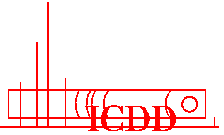
The Use of Experimental and Calculated Data in Diffraction Databases
There are a number of databases available to the diffraction community. Two of the more important of these are the Powder Diffraction File (PDF) maintained by the International Centre for Diffraction Data (ICDD), and the Inorganic Crystal Structure Databases (ICSD) maintained by Fachsinformationszentrum (FIZ, Karlsruhe). These databases have proven useful in a wide range of applications. For example, the PDF has been used as an indinspensable tool in phase identification and indentification of unknowns. The ICSD database has extensive and explicit reference to the structures of compounds: atomic coordinates, space group and even thermal vibration parameters. These databases are often used as independent sources of information. However, little thought has been given on how to exploit the combined properties of structural database tools. The ICDD has recently completed an agreement between ICDD and FIZ that provides for mutual use of the PDF and the ICDD databases. The focus of this paper is to examine ways of exploiting the combined properties of both databases.
In 1996, there were approximately 76,000 entries in the pDF and approximately 43,000 entries in the ICSD database. The ICSD database is being used to calculate entries in the PDF. Thus, to derive d-spacing and peak intensity data requires the synthesis of full diffraction patterns, i.e., we use the structural data in the ICSD database and then add instrumental resolution information. The combined data from PDF and ICSD can be effectively used in many ways. For example, we can calculate PDF data for an ideally random crystallite distribution and also in the absence of preferred orientation. Again, we can use systematic studies of intermediate members in solid solution series to help produce reliable quantitative phase analyses. In some cases, we can study how solid solution properties vary with composition and extensive properties (e.g., T, P, H), thus gaining insight in bonding behavior.
no fees are required for ECM-18 participants